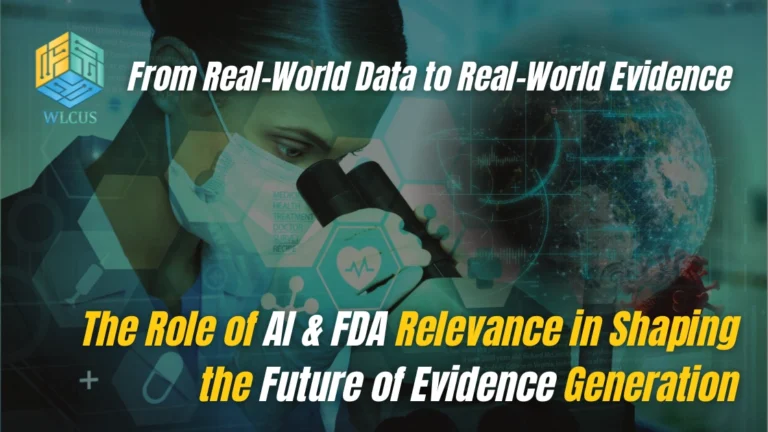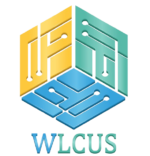From Real-World Data to Real-World Evidence:
The Role of AI & FDA Relevance in Shaping the Future of Evidence Generation

In today’s data-rich healthcare ecosystem, Real-World Data (RWD) is increasingly viewed as a critical asset, but alone, it’s not enough. The real value emerges when RWD is transformed into Real-World Evidence (RWE) that supports regulatory decisions, informs market access strategies, and drives clinical insights. And now, Artificial Intelligence (AI) is accelerating this transformation like never before.
At WLCUS, we see the convergence of these forces, RWD, RWE, and AI, not as a trend, but as a pivotal shift reshaping how evidence is generated, validated, and accepted by health authorities, particularly the FDA.
What is Real-World Data and Real-World Evidence?
Real-World Data (RWD) includes information from various sources such as electronic health records (EHRs), claims databases, wearable devices, registries, and patient-reported outcomes.
Real-World Evidence (RWE) is the clinical evidence derived from RWD through robust analytics and methodologies that demonstrate how treatments work in real-life settings.
The transition from RWD to RWE requires more than data collection, it demands interpretation, validation, and context. That’s where AI enters the picture.
Artificial Intelligence (AI): The Catalyst for RWD-to-RWE Transformation
AI-driven tools are rapidly advancing the ability to clean, curate, and analyze vast datasets with speed and precision. Here’s how AI is enhancing evidence generation:
- Natural Language Processing (NLP): Extracts insights from unstructured clinical notes and patient narratives.
- Predictive Analytics: Identifies trends, outcomes, and potential adverse events earlier in the drug lifecycle.
- Automated Data Harmonization: Aligns diverse data sources across geographies and formats for regulatory-ready evidence packages.
AI doesn’t just accelerate processes, it unlocks previously inaccessible insights hidden within complex healthcare data ecosystems.
FDA’s Evolving View on RWE
The U.S. Food and Drug Administration (FDA) has increasingly embraced RWE for regulatory submissions, especially in post-market surveillance, label expansions, and even initial approvals in certain cases.
- In 2018, the FDA’s Framework for RWE set the stage.
- In 2021, the RWE Program further formalized the agency’s commitment to integrating real-world insights into decision-making.
- Today, the FDA continues to issue guidance on using RWE, particularly when derived from AI-powered methodologies.
Yet, while the promise is enormous, so are the responsibilities. Stakeholders must ensure data quality, transparency, reproducibility, and bias mitigation, especially when AI algorithms are in play.
Why It Matters for Pharma, Biotech, and Health Systems
For industry leaders, this transformation isn’t theoretical, it’s strategic.
- Pharma can reduce trial timelines and costs by incorporating RWE earlier.
- BioTechs can validate niche therapies using real-world patient populations.
- Health systems can leverage AI and RWE to improve outcomes and personalize treatment at scale.
- As the regulatory landscape evolves, those who align early with FDA expectations and ethical AI principles will have a significant competitive advantage.
Join the Conversation at Global RWE & Market Access Summit 2025
This October in Frankfurt, Global RWE & Market Access Summit 2025 will gather decision-makers, AI pioneers, regulators, and RWE leaders to explore this transformative space.
One of the most anticipated sessions:
From RWD to RWE: AI Application and FDA Relevance
Presented by Dr. Hans-Jürgen Arens, Vice President, Global Data Analytics Services at Frenova, a Fresenius Medical Care company.
He’ll share how one of the largest global patient databases is unlocking actionable insights with AI, and what it means for regulatory-grade analytics.
The Future is Now
The shift from RWD to RWE, powered by AI and supported by regulators like the FDA, is more than a technological evolution, it’s a healthcare revolution.
At WLCUS, we believe fostering collaboration between data scientists, clinicians, regulators, and pharma leaders is the key to unlocking the full potential of real-world insights.
